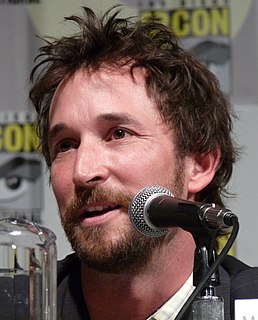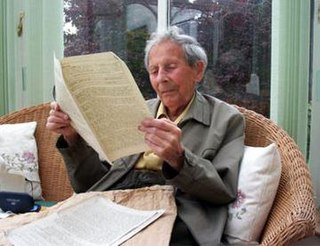A Quote by Donella Meadows
I know that war and mayhem run in our blood. I refuse to believe that they must dominate our lives. We humans are animals, too, but animals with amazing powers of rationality, morality, society. We can use our strength and courage not to savage each other, but to defend our highest purposes.
Related Quotes
Our family holidays always include our animals. On Thanksgiving, we love to walk around our farm and visit with our rescued pigs, goats, horses, emus and many other rescued animals. We give them all special vegetables that day, and the whole family enjoys a vegetarian Thanksgiving dinner. We know that the animals are giving thanks that day, and we are also giving thanks for the joy they bring to our lives.
Humans — who enslave, castrate, experiment on, and fillet other animals — have had an understandable penchant for pretending animals do not feel pain. A sharp distinction between humans and 'animals' is essential if we are to bend them to our will, make them work for us, wear them, eat them — without any disquieting tinges of guilt or regret. It is unseemly of us, who often behave so unfeelingly toward other animals, to contend that only humans can suffer. The behavior of other animals renders such pretensions specious. They are just too much like us.
The truly unique trait of 'Sapiens' is our ability to create and believe fiction. All other animals use their communication system to describe reality. We use our communication system to create new realities. Of course, not all fictions are shared by all humans, but at least one has become universal in our world, and this is money.
We humans are in such a strange position—we are still animals whose behavior reflects that of our ancestors, yet we are unique—unlike any other animal on earth. Our distinctiveness separates us and makes it easy to forget where we came from. Perhaps dogs help us remember the depth of our roots, reminding us—the animals at the other end of the leash—that we may be special, but we are not alone. No wonder we call them our best friends.
There is increasing social concern about our use of nonhumans for experiments, food, clothing and entertainment. This concern about animals reflects both our own moral development as a civilization and our recognition that the differences between humans and animals are, for the most part, differences of degree and not of kind.
We need courage and strength, a kind of warrior spirit. But the place for this warrior strength is in the heart. We need energy, commitment, and courage not to run from our life nor to cover it over with any philosophy-mate rial or spiritual. We need a warrior’s heart that lets us face our lives directly, our pains and limitations, our joys and possibilities.
Dominion does not mean domination. We hold dominion over animals only because of our powerful and ubiquitous intellect. Not because we are morally superior. Not because we have a "right" to exploit those who cannot defend themselves. Let us use our brain to move toward compassion and away from cruelty, to feel empathy rather than cold indifference, to feel animals' pain in our hearts.
So far as this argument is concerned nonhuman animals and infants and retarded humans are in the same category; and if we use this argument to justify experiments on nonhuman animals we have to ask ourselves whether we are also prepared to allow experiments on human infants and retarded adults; and if we make a distinction between animals and these humans, on what basis can we do it, other than a bare-faced - and morally indefensible - preference for members of our own species?
The vegan believes that if we are to be true emancipators of animals we must renounce absolutely our traditional and conceited attitude that we have the right to use them to serve our needs. We must supply these needs by other means.... If the vegan ideal of non-exploitation were generally adopted, it would be the greatest peaceful revolution ever known, abolishing vast industries and establishing new ones in the better interests of men and animals alike.






































